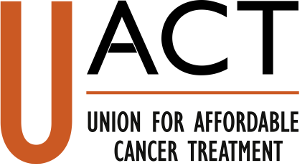UACT is disappointed by the preliminary rejection of Yescarta by the UK’s National Institute for Health and Care Excellence (NICE) over its high price, for two reasons:
1) Gilead is asking too much for the treatment which is largely based upon the US National Institutes of Health (NIH owned inventions, and
2) the UK government has not given any public indication it is considering alternatives to withholding coverage to address the problem of an excessive price.
Yescarta is the Gilead trade name for axicabtagene ciloleucel, a CD19-directed chimeric antigen receptor T-cell (CAR T) technology invented by the NIH, licensed to Kite/Gilead and approved by the European Commission for use throughout the European Union on August 27th, to treat two aggressive forms of non-Hodgkin lymphoma. Gilead has priced the treatment in the US at $ 373,000. The list price in the UK is not public.
In the United States, axicabtagene ciloleucel is indicated for the treatment of adult patients with relapsed or refractory large B-cell lymphoma after two or more lines of systemic therapy, including diffuse large B-cell lymphoma (DLBCL) not otherwise specified, primary mediastinal large B-cell lymphoma, high grade B-cell lymphoma, and DLBCL arising from follicular lymphoma. The European Medicines Agency (EMA) approved Yescarta for the treatment of diffuse large cell lymphoma (DLBCL) and primary mediastinal B-cell lymphoma (PMBCL). [http://www.ema.europa.eu/ema/index.jsp?curl=pages/medicines/human/medicines/004480/smops/Positive/human_smop_001318.jsp&mid=WC0b01ac058001d127]
Axicabtagene ciloleucel/Yescarta which targets untreatable forms of blood cancer is the first CAR T therapy assessed by NICE which will also evaluate another CAR T therapy by Novartis, Kymriah, and later, other gene and cell based therapies.
The preliminary rejection by NICE does not bode well for the future access to these therapies and requires government action not complacency.. To be blunt, the failure of multiple government policies will lead to the premature death for UK patients.
Governments, especially in this case the NIH and the UK, have serious responsibilities. They should be held accountable for not using the statutes they have to ensure that live saving therapies are in fact accessible and affordable.
The NIH requires companies that license its inventions to bring them to practical application, but it also defines this as an obligation that “the invention is being utilized and that its benefits are to the extent permitted by law or Government regulations available to the public on reasonable terms.” [35 USC 201(f)]. The NIH has done nothing to ensure that prices are reasonable, sending the signal to companies like Gilead, Novartis and Astellas that the NIH won’t ever interfere with their pricing decisions.
The UK government uses the grant of patents as an incentive to invest in the invention and development of new technologies. In the case of axicabtagene ciloleucel, the key inventions were funded by the U.S. government and licensed on concessionary terms to Kite/Gilead. This is not a drug. The key axicabtagene ciloleucel inventions are medical procedures involving the use of a public domain virus to modify the patient’s own T-cells to fight cancer.
The UK government, and its agencies, have two powerful tools to end the Gilead monopoly on axicabtagene ciloleucel.
One tool is to use the Crown Use provisions set out in Sections 55-59 of the UK Patent Act of 1977 to grant compulsory licenses on any patents related to axicabtagene ciloleucel, on the grounds that the price is excessive, a fact consistent with the NICE finding that the price is too high to justify coverage.
The second tool is a finding that patents on axicabtagene ciloleucel are invalid. Article 4A of the UK Patent Act declares that “A patent shall not be granted for the invention of . . . a method of treatment of the human or animal body by surgery or therapy.” This appears to be exactly the description of axicabtagene ciloleucel.
UACT calls upon the UK government to issue a finding that the patents on axicabtagene ciloleucel are invalid, as regards the procedures to treat patients, and if necessary, to involve Section 55 of the UK Patent Act for “Use of Patented Inventions for Services of the Crown.”
For UACT and its members, recognizing the plain language and obvious relevance of the UK patent exception as well as using the crown use provision is clearly better than letting UK patients die.
ANNEX
UK Patents Act 1977
https://www.legislation.gov.uk/ukpga/1977/37/section/4A
Article 4A
Methods of treatment or diagnosis
(1)A patent shall not be granted for the invention of—
(a)a method of treatment of the human or animal body by surgery or therapy, or
(b)a method of diagnosis practised on the human or animal body.
(2)Subsection (1) above does not apply to an invention consisting of a substance or composition for use in any such method.
(3)In the case of an invention consisting of a substance or composition for use in any such method, the fact that the substance or composition forms part of the state of the art shall not prevent the invention from being taken to be new if the use of the substance or composition in any such method does not form part of the state of the art.
(4)In the case of an invention consisting of a substance or composition for a specific use in any such method, the fact that the substance or composition forms part of the state of the art shall not prevent the invention from being taken to be new if that specific use does not form part of the state of the art.]
For further reading:
NICE Decision:
https://www.nice.org.uk/guidance/GID-TA10214/documents/appraisal-consultation-document
UK rejects Gilead’s CAR-T cancer cell therapy as too expensive by Ben Hirschler on August 28, 2018
https://in.reuters.com/article/us-gilead-sciences-britain/uk-rejects-gileads-car-t-cancer-cell-therapy-as-too-expensive-idINKCN1LD16V
